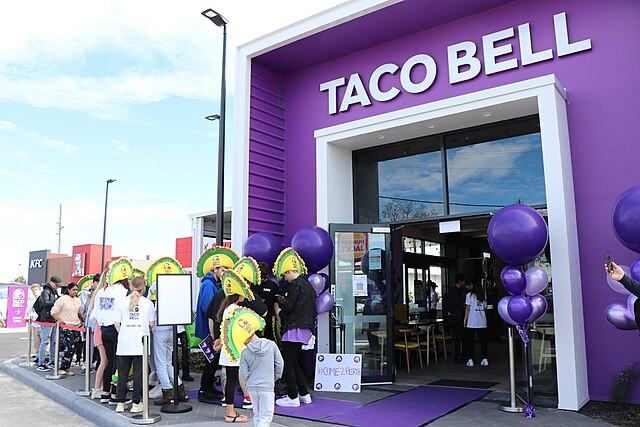Yum Brands reported fourth-quarter earnings and revenue on Thursday that exceeded Wall Street estimates, driven by strong sales at Taco Bell and international growth in its KFC division. The company's net sales increased 16% to $2.36 billion, while adjusted earnings per share came in at $1.61, slightly above analysts' expectations of $1.60.
Shares of Yum Brands rose 3% in premarket trading following the earnings announcement, reflecting investor confidence in the company's growth strategy. CEO David Gibbs credited Taco Bell's value-driven menu and KFC's international expansion as the key drivers of performance. "Our twin growth engines remain strong with Taco Bell U.S. delivering same-store sales growth of 5% in the fourth quarter, meaningfully outpacing the industry, and KFC International delivering its second consecutive year with over 2,000 net new units," Gibbs said.
Taco Bell was the standout performer in the quarter, reporting 5% same-store sales growth in the U.S. The brand's value offerings, particularly the $5 Luxe Carvings Box, resonated with budget-conscious consumers navigating inflationary pressures. Fast-food rivals such as McDonald's and Burger King have also leaned heavily on value meals to sustain demand as higher living costs continue to impact discretionary spending.
KFC's global presence bolstered the company's performance despite flat same-store sales in the U.S., where the brand faces intensifying competition from Popeyes and Raising Cane's. KFC's system sales increased 5% in China, its largest market, while regions such as Europe and Latin America posted double-digit growth. The chain opened 1,100 new locations worldwide during the quarter, contributing to Yum's total of 1,804 new restaurant openings.
Pizza Hut continued to struggle, with same-store sales declining 1% globally. The chain's U.S. segment saw a steeper 2% drop, while international sales remained flat. This marked an improvement from the previous quarter, where the brand saw a 4% decline in same-store sales. Yum has been working to revamp Pizza Hut's menu and digital capabilities, but competition in the pizza sector remains fierce.
Yum Brands has also been making significant investments in technology, with digital sales now accounting for more than half of its total revenue. The company has been integrating artificial intelligence into its operations, including the rollout of "Byte by Yum" software, which aims to reduce wait times, optimize delivery, and manage pricing and promotions more effectively.
The company's core operating profit grew 8% in 2024, excluding the impact of an extra week in the year. Yum expects at least another 8% growth in 2025, aligning with its long-term financial targets.






